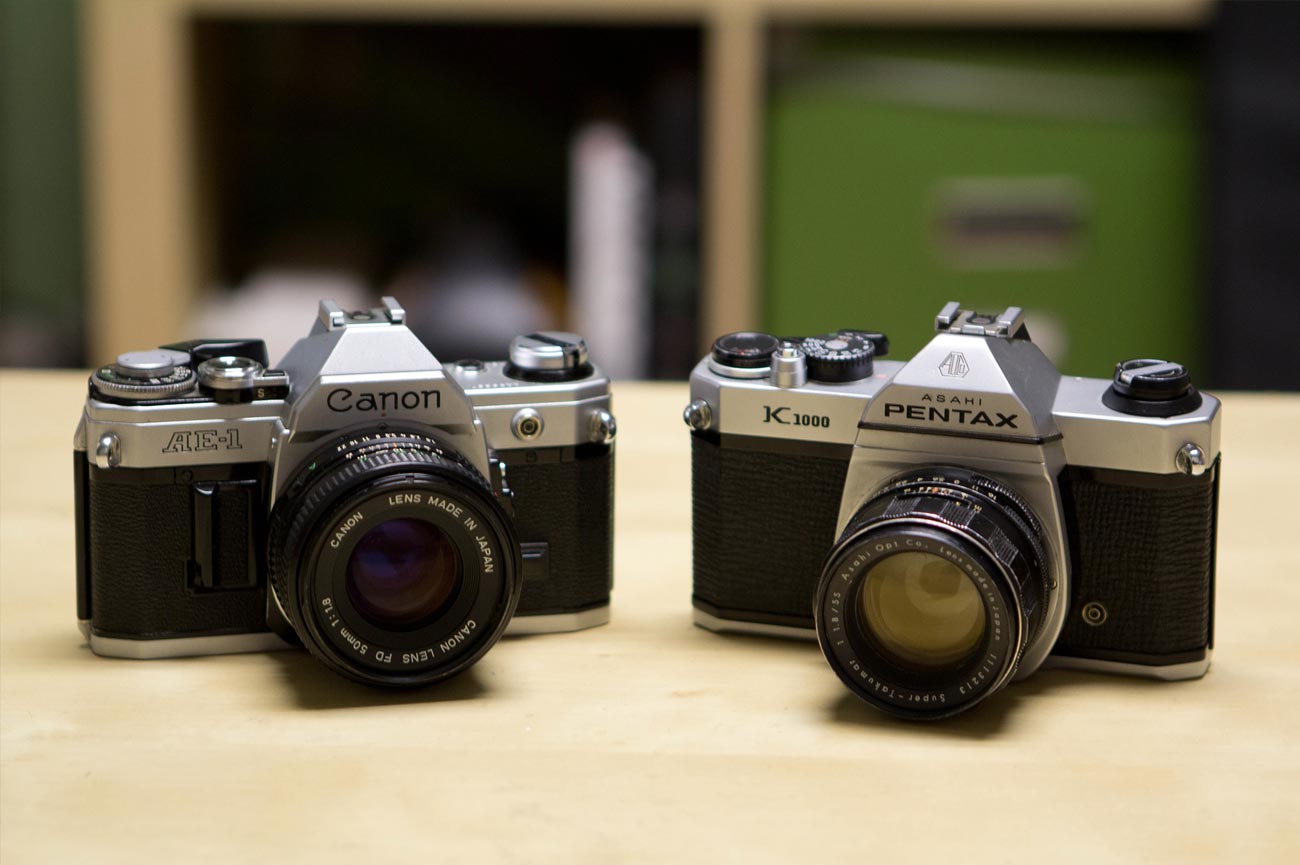Basic Camera Care

Photo by Shelby Asistio. Licensed under CC BY-SA 2.0
Film camera bodies, whether 35mm SLR or medium format, are designed to be very sturdy and withstand damage that may occur with everyday use. However, you should still follow some basic camera care tips to help keep your camera clean and well maintained for years.
Protect the Camera
All cameras typically come with a camera strap to put around your neck. If not, buy one. Anytime you are doing handheld camera work, always keep the camera strap on you to avoid damage that can occur when the camera slips out of your hand. However, camera straps are prone to break as well, so it would be best to always keep the camera strap around the neck and the camera in hand – do not simply rely on one or the other. When the camera is not in use, always ensure the lens cap is on. This can help minimize damage if the camera is dropped as well as provide protection against dust and scratches on the lens. Some photographers also prefer to use UV filters on the lens for further protection. Because UV filters are clear they will typically not affect image quality.
If dust or dirt comes in contact with the film camera, use an ultrafine microfiber cleaning cloth. These cloths will also help remove finger marks or spots on the lens. When cleaning the lens always wipe in a circular motion. If small amounts of water come in contact with the camera it is best to immediately wipe it off. Most film cameras, by default, are not waterproof – though there are many accessories available to make them waterproof. To protect from rain, or even high amounts of dust and dirt, you can purchase rain guard gear to protect the camera. If not immediately available, plastic bags can also be used.
Storing the Camera
When not in use, camera bags are essential. Not only will a camera bag provide protection while the photographer moves from one location to the next, but it also safeguards against dirt and dust during long-term storage. Camera bags come in all sizes to fit multiple cameras or lenses or simply the camera and lens in use. If the camera will not be used for a lengthy period of time any batteries should be removed. Film cameras and SLR systems typically use small disc-shaped batteries to power automatic features and built-in light meter systems. Removing the batteries will not only help extend the battery life but also provide protection against possible battery leakage inside the camera.
The film camera should always be stored in room temperature as much as possible. If stored in high heat or direct sunlight, the heat can slowly melt lubrication greases inside the camera and potentially damage it. Prolonged heat can also cause some camera parts to expand. Conversely, cold temperatures can be just as damaging to the camera.

















